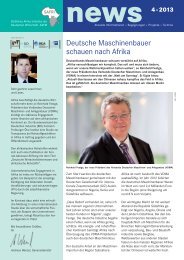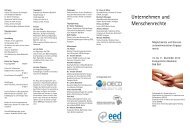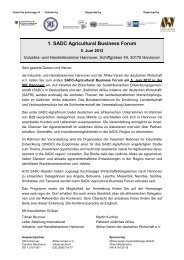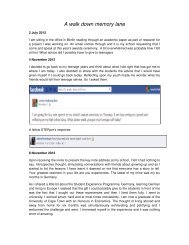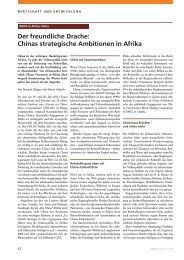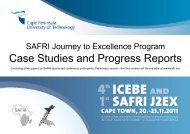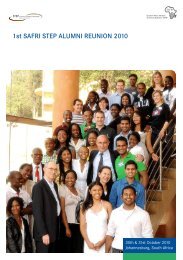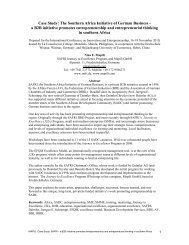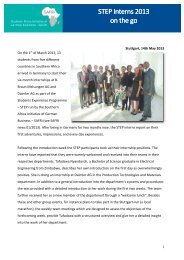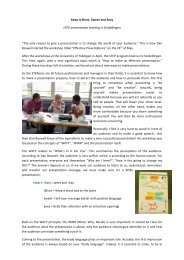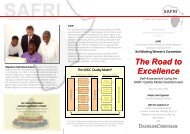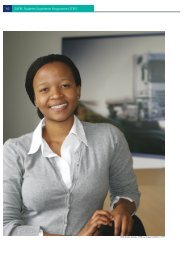conference programme - icebe.net
conference programme - icebe.net
conference programme - icebe.net
Create successful ePaper yourself
Turn your PDF publications into a flip-book with our unique Google optimized e-Paper software.
Paper Abstracts—In Alphabetical Order of Presenters<br />
29<br />
ENGINEERING PROFESSION FOR SUSTAINABLE INNOVATION<br />
IN THE DEVELOPING COUNTRIES.<br />
EKO. J. AKPAMA 1,*, OGBONNAYA. I. OKORO 2<br />
1 Department of Electrical Engineering, Cross River University of Technology,<br />
Calabar, Cross River State, Nigeria<br />
2 Department of Electrical Engineering, Micheal Okpara University of Agric,<br />
Umudike, Umuahia, Abia, Nigeria<br />
* Corresponding author. Tel: +234-07063985363, Email: akpamaeko@yahoo.com<br />
ABSTRACT<br />
For any economy to strife for sustainable innovation, the engineering<br />
profession must be given its rightful place. This is the profession<br />
that drives the economy of any nation. The awareness, impact and<br />
training, need to be evaluated without which the role or relevance of<br />
engineering will not be noticed. The engineering profession and<br />
engineering infrastructure must be sustained and updated to enhance<br />
industrialization for the globalized economy. In many developing<br />
economies, engineering is not seen as the driver of the economy.<br />
Engineers are used and dumped many a times. In this regard,<br />
this paper discuses engineering profession’s on positive innovation<br />
mostly in the developing countries. For sustainable innovation to<br />
strife, the engineering profession must be taken seriously by stake<br />
holders as regards funding engineering education, providing adequate<br />
engineering infrastructure, manpower development, poverty<br />
reduction through entrepreneurship and creating enabling environment<br />
for engineering practice.<br />
Keywords: Sustainability, University Education, Innovation, Industrialization,<br />
Entrepreneurship, Poverty Reduction.<br />
FOCUS GROUP STRATEGIES IN PROMOTING COMMUNITY AND<br />
ENTERPRISE DEVELOPMENT<br />
BENNETT ALEXANDER, JANE CONLON*<br />
Cape Peninsula University of Technology, Cape Town, South Africa<br />
*University of Coventry, Coventry, United Kingdom<br />
ABSTRACT<br />
This paper is based on the work of the Tabeisa organisation in promoting<br />
social and commercial entrepreneurship towards community<br />
development and presents a critical perspective on managing Focus<br />
Group Sessions (FGS) that are focused on pertinent development<br />
issues within socially disadvantaged communities. The power relations<br />
that inform ownership and efficacy of community development<br />
projects are interrogated using a framework based on critical theory.<br />
The role of a “higher functioning” project facilitator is investigated in<br />
facilitating an “ownership” discourse.<br />
The experiences around a series of Tabeisa FGS are reported<br />
which were conducted in the process of delivering various and divergent<br />
entrepreneurship development projects. The Is’baya fruit<br />
farming development project in the Eastern Cape was used as a<br />
case study. The paper provides practical insight into the management<br />
of FGS by providing analysis and anecdotal accounts of the<br />
experiences of the “Is’baya” project.<br />
The perceived non-reporting of information by facilitators during<br />
FGS or community exchanges is investigated on the basis of observed<br />
imbalances in the respective dynamics that typically manifest.<br />
This paper consequently focuses on the socio-cultural and<br />
power relationships that may manifest within sessions and potentially<br />
compromise the effective gathering of data and information<br />
against the defined agenda of the project.




